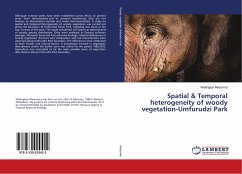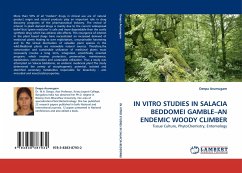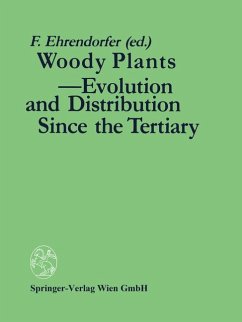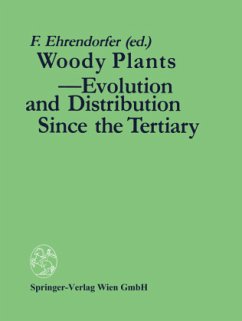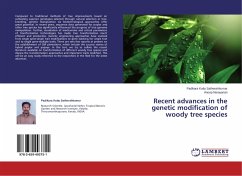
Recent advances in the genetic modification of woody tree species
Versandkostenfrei!
Versandfertig in 6-10 Tagen
27,99 €
inkl. MwSt.

PAYBACK Punkte
14 °P sammeln!
Compared to traditional methods of tree improvements based on cultivating superior genotypes selected through natural selection or tree-breeding, genetic manipulation via biotechnological approaches offer great potential. In recent years, sequence data generated for poplar and other tree species has significantly influenced the progress of tree genome manipulation. Further, elucidation of mechanisms and critical parameters of transformation technologies has made tree transformation much efficient and productive. Genetic engineering approaches have evolved from single gene-single trait modifica...
Compared to traditional methods of tree improvements based on cultivating superior genotypes selected through natural selection or tree-breeding, genetic manipulation via biotechnological approaches offer great potential. In recent years, sequence data generated for poplar and other tree species has significantly influenced the progress of tree genome manipulation. Further, elucidation of mechanisms and critical parameters of transformation technologies has made tree transformation much efficient and productive. Genetic engineering approaches have evolved from single gene-single trait modifications to gene stacking for single trait and to single gene-multiple traits. There are very few reports at present on the establishment of GM plantations, which include the success stories of hybrid poplar and papaya. In this text, we try to collate the recent literature available on transformation of different woody tree species and discuss the transformation approaches and important traits modified. This will be an easy ready reference to the researchers in the filed for the latest advances.



